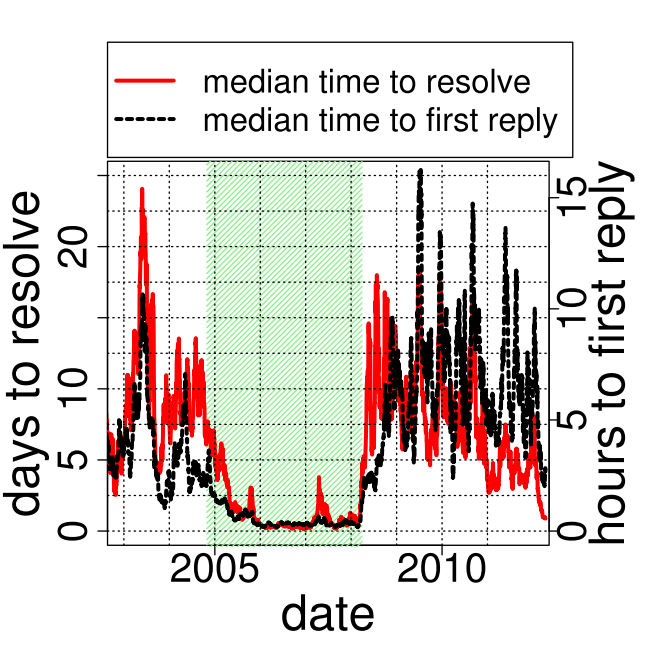|
The Influence of Interaction Patterns on Success in Socio-Technical SystemsThis project is related to our research lines Temporal networks and Design and Analysis of Socio-Technical Systems Duration 36 months (January 2014 - December 2015) Funding source MTEC Foundation, Stiftung zur Förderung der Forschung und Ausbildung in Unternehmenswissenschaften an der ETH Zürich
Increasingly, information and communication technologies (ICT) are being used to mediate, represent and record interactions and collaborations between humans. Examples for such systems not only include online social networks, but also information systems or collaborative software designed to help people organise themselves and collectively achieve a common goal. The use of these ICT systems gives rise to socio-technical systems in which technical infrastructures are coupled to complex social systems. A particular effect of their wide-spread adoption is that large-scale data sets on social structures and dynamics are increasingly becoming available. This has led to a massive surge of interest in the quantitative analysis of socio-technical systems not only in academia but also in industry. In this research, investigating how social interactions influence success both at the level of individuals as well as organisations is becoming particularly popular. Apart from arousing significant interests in industry, these studies also bear a huge potential to identify risk factors associated with the social capital of organisations. As such, this research contributes to an optimised design of the socio-technical systems that increasingly shape our society.
Figure: Quantitative success indicator for a software development team. In this project, we will study how changes in individual and collective success are related to the temporal dynamics of network structures. Going beyond previous studies of how social structures influence the success of individuals and organisations, in this research project we will study the influence of dynamic interaction patterns in socio-technical systems. In particular, this project will close the gap between a) theoretical studies of time-varying (social) networks and b) the application of network analysis techniques in the study of success factors for social organisations. Based on an existing theoretical framework for the study of time-varying complex networks that has been developed at the Chair of Systems Design, we will:
|
||
